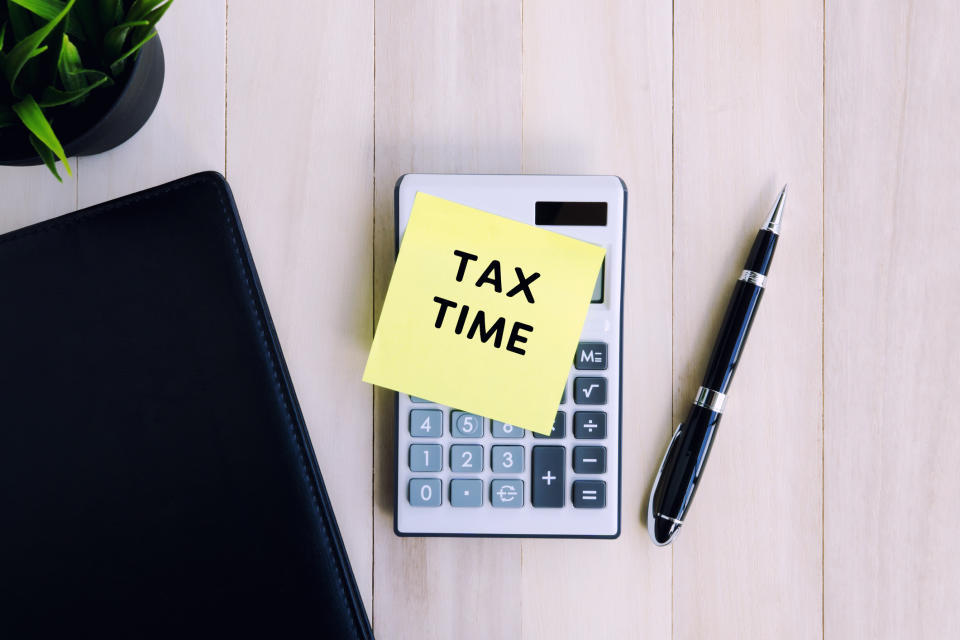Tax time 2019: 5 tips to get your tax affairs in check before the EOFY

As we head towards the end of the financial year, now is the time to take steps to get your tax affairs in order and look at any last minute planning to maximise your return.
Here are 5 tips for a happy tax time:
1. Gather your paperwork
Take some time out to gather together all the information you will need to help you prepare your tax returns, including invoices and receipts for work-related expenses and any bank/credit card statements that contain items of work-related expenses that you no longer have (or never had) receipts or invoices for.
If you’re not sure if it’s claimable, collect together the receipt or invoice anyway and discuss it with your tax agent.
If you don’t have the paperwork, you can’t claim a deduction so it makes sense to set aside this time in advance of the end of the financial year to spare yourself a stressful document hunt whilst you’re actually in the process of getting your return prepared!
Related article: Coalition’s income tax cuts would make gender pay inequality worse
Related article: TAX CUT DELAY: Scott Morrison already breaks election promise
Related article: Budget tax cuts: what Treasurer Josh Frydenberg promised
2. Work out your business/personal balance on bills
If you’re claiming any expenses that have a work-related element and a private element (such as for the use of a personal mobile phone) set some time aside to work out what a reasonable apportionment is for the work-related bit.
3. Generate some additional tax deductions
As we’ve not yet reached the end of the financial year, it’s not too late to generate some additional tax deductions this tax year:
If you have any professional subscriptions or union fees due, pay by 30 June and you can claim the deduction for the whole amount this year.
Charitable donations are tax deductible – anything over $2, with a receipt, paid to a charity registered as a deductible gift recipient (which covers most major charities) will be deductible.
If you have some spare cash, look at making a personal contribution into your super fund. Provided the total amount of your contributions (including the contributions made on your behalf by your employer) does not exceed $25,000, this can be a great way to boost your retirement savings and claim a tax deduction for the personal contribution. The payment must be made by June 30th and you need to advise your super fund that you’ve made the payment by the time you lodge your return (your super fund or accountant can give you guidance on how to complete the form and there’s a standard form on the ATO website here.
Can you defer some of your income until next tax year? This can be difficult unless you have a very understanding employer but if – for instance – you’re expecting a bonus, you might look to getting it paid after 1 July, so moving the tax liability into next year. This is particularly useful if the bonus might take you over a tax threshold into one of the higher tax rates this year.
4. Claim everything you’re entitled to
For example, if you work from home, you claim a proportion of household bills covering the work-related element of those costs. Things you can claim for include:
Heating, cooling and lighting
Decline in value (depreciation) of home office furniture and fittings, office equipment and computers
Computer consumables, stationery, telephone and internet costs claimed on an actual expense basis
5. Keep a diary or set out a record
You will need to keep a diary to work out how much of your running expenses relate to doing work in your home office.
The diary needs to detail the time you spend in the home office compared with other users of the home office.
Keep diary records for a representative four-week period.
Alternatively, you can use a fixed rate of 52 cents per hour for home office expenses for heating, cooling, lighting and the decline in value of furniture instead of keeping details of actual costs.
You just need to keep a record of the number of hours you use the home office and multiply that by 52 cents per hour. Under this method you can also include the decline in value of office equipment (i.e. computers, faxes, etc.) but not furniture.
Make your money work with Yahoo Finance’s daily newsletter. Sign up here and stay on top of the latest money, news and tech news.

 Yahoo Finance
Yahoo Finance 
